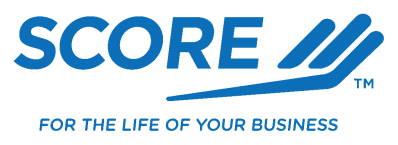10 Common Misunderstandings About Obtaining a Patent
In some ways, a patent is essential, but you can get along without one
By SCORE
- The first thing to do with a new idea is to get a patent. Wrong. Mere ideas are not patentable. Only useful products and processes can be patented, and you have to be able to describe it with such completeness as to enable others to make or practice and use it.
- If my product has not been on the market before, I can patent it. Wrong. That’s not enough. If it has been described in a prior printed publication anywhere in the world, it is not patentable. Moreover, merely being different is not enough—it has to be an unobvious improvement over what is known to the public.
- Having a patent stops others from copying or imitating my product. Wrong. Patents are not self-enforcing. You have to identify and pursue copiers, and a patent infringement lawsuit takes years and costs hundreds of thousands of dollars, win or lose.
- Getting a patent is something I can do quickly, at low cost. Wrong. The U.S. Supreme Court has characterized a patent as one of the most difficult documents to write. Getting a patent is a highly specialized undertaking that requires the services of a patent attorney or agent. And, it takes a couple of years, and costs thousands of dollars, even if no complications are encountered.
- Having a patent is needed to be able to sell my product. Wrong. Most products on the market are not and never were patented, and in most cases any applicable patents have expired.
- Having a patent will assure the success of my product. Wrong. Fewer than one patented product in a hundred ever makes it to the marketplace.
- Having a patent will assure that I will be able to sell my idea or license it to a big company. Wrong. Big companies have many specialists developing new products, and the likelihood that a private inventor without that expertise might come up with something they haven’t thought of is unusual. Besides, your product would have to be a good fit for all three major company divisions—manufacturing, engineering, and sales/marketing—before a big company would have any interest.
- I can get a non-disclosure agreement which will give me adequate protection without a patent. Wrong. Non-disclosure agreements are not all alike, but to be enforceable they must be limited in time and scope. Typically they expire in a year or two, and they cover only specifically disclosed subject matter. Besides, for a manufacturing company, signing such an agreement in advance is like signing a blank check—you simply cannot expect that.
- Describing my idea in a registered mail letter to myself will protect me. Wrong. Such documents are useless. They are not even admissible in evidence in the Patent Office or in the courts.
- So is there anything I can do, without major expense, for at least a measure of protection? You can file a provisional application in the US Patent and Trademark Office. No search, no claims, and no special format requirements apply, so you can do it yourself provided that you make a complete enough disclosure to enable others to practice the invention by using only ordinary skill in the field to which the invention pertains.

By SCORE

